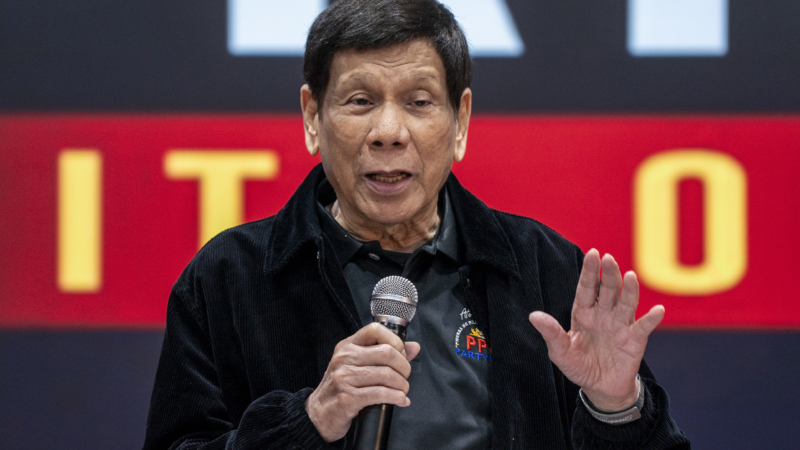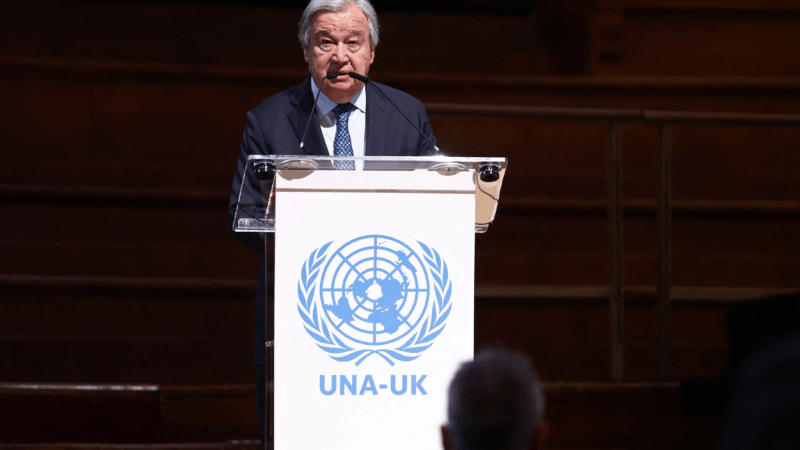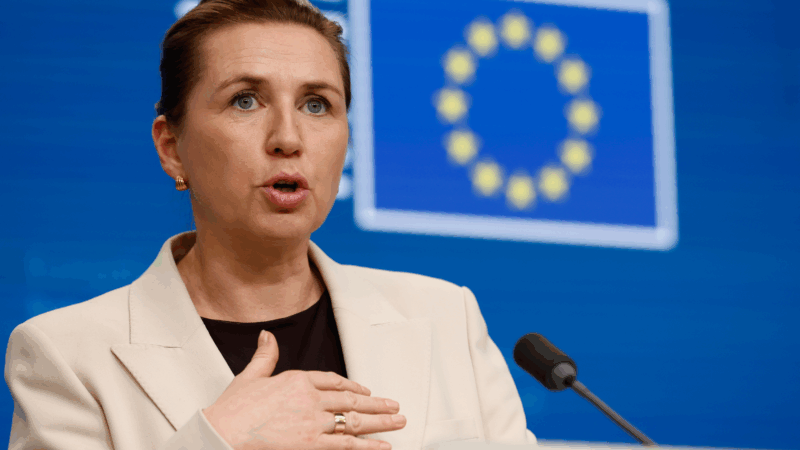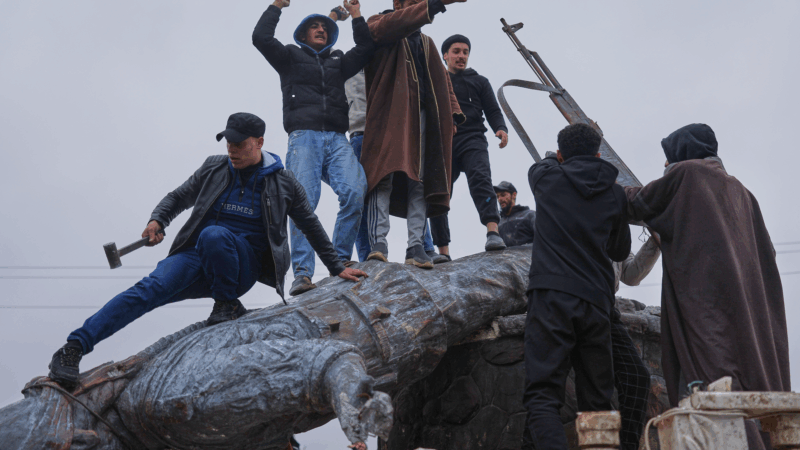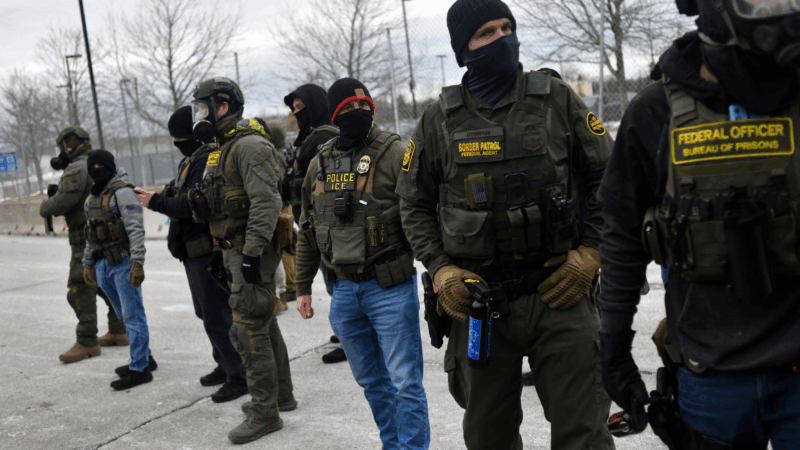Former Philippine leader Duterte arrested on an ICC warrant over drug killings
MANILA, Philippines — Former Philippine President Rodrigo Duterte was arrested by police at Manila’s international airport Tuesday on order of the International Criminal Court in connection with a case of crime against humanity filed against him, the Philippine government said.
Duterte was arrested after arriving from Hong Kong and police took him into custody on orders of the ICC, which has been investigating the massive killings that happened under the former president’s deadly crackdown against illegal drugs, President Ferdinand Marcos’ office said in a statement.
“Upon his arrival, the prosecutor general served the ICC notification for an arrest warrant to the former president for the crime of crime against humanity,” the government statement. “He’s now in the custody of authorities.”
The surprise arrest sparked a commotion at the airport, where lawyers and aides of Duterte loudly protested that they, along with a doctor and lawyers, were prevented from coming close to him after he was taken into police custody. “This is a violation of his constitutional right,” Sen. Bong Go, a close Duterte ally. told reporters.
The Manila office of the International Police received an official copy of the arrest warrant from the global court, the government said.

It was not immediately clear where Duterte was taken by the police. The government said the 79-year-old former leader was in good health and was examined by government doctors.
The ICC began investigating drug killings under Duterte from Nov. 1, 2011, when he was still mayor of the southern city of Davao, to March 16, 2019, as possible crimes against humanity. Duterte withdrew the Philippines in 2019 from the Rome Statute in a move human rights activists say was aimed at escaping accountability.
The Duterte administration moved to suspend the global court’s investigation in late 2021 by arguing that Philippine authorities were already looking into the same allegations, arguing the ICC — a court of last resort — didn’t have jurisdiction.
Appeals judges at the ICC ruled in 2023 the investigation could resume and rejected the Duterte administration’s objections. Based in The Hague, the Netherlands, the ICC can step in when countries are unwilling or unable to prosecute suspects in the most heinous international crimes, including genocide, war crimes and crimes against humanity.
President Ferdinand Marcos Jr., who succeeded Duterte in 2022 and became entangled in a bitter political dispute with the former president, has decided not to rejoin the global court. But the Marcos administration has said it would cooperate if the ICC asks international police to take Duterte into custody through a so-called Red Notice, a request for law enforcement agencies worldwide to locate and temporarily arrest a crime suspect.
High-speed trains collide after one derails in southern Spain, killing at least 21
The crash happened in Spain's Andalusia province. Officials fear the death toll may rise.
United Nations leaders bemoan global turmoil as the General Assembly turns 80
On Saturday, the UNGA celebrated its 80th birthday in London. Speakers including U.N. Secretary-General António Guterres addressed global uncertainty during the second term of President Trump.
Parts of Florida receive rare snowfall as freezing temperatures linger
Snow has fallen in Florida for the second year in a row.
European leaders warn Trump’s Greenland tariffs threaten ‘dangerous downward spiral’
In a joint statement, leaders of eight countries said they stand in "full solidarity" with Denmark and Greenland. Denmark's Prime Minister Mette Frederiksen added: "Europe will not be blackmailed."
Syrian government announces a ceasefire with the Kurdish-led Syrian Democratic Forces
Syria's new leaders, since toppling Bashar Assad in December 2024, have struggled to assert their full authority over the war-torn country.
U.S. military troops on standby for possible deployment to Minnesota
The move comes after President Trump again threatened to invoke the Insurrection Act to control ongoing protests over the immigration enforcement surge in Minneapolis.

